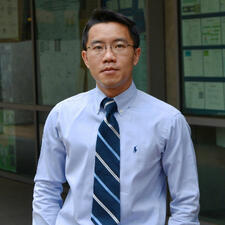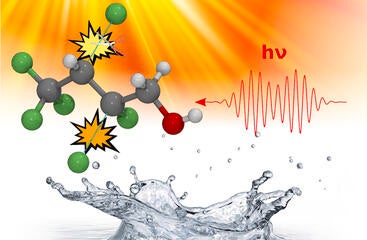
Bryan M. Wong, a professor in UCR’s Materials Science & Engineering Program, and his colleagues have won the Editor’s Choice Award at the 2022 HPCwire Supercomputing Conference, a venue that covers the development of the fastest computers in the world and the people who run them.
Wong and his colleagues were recognized for using supercomputer simulations to investigate methods to remove nonbiodegradable “forever chemicals,” such as perfluoroalkyl and polyfluoroalkyl substances (PFAS), from drinking water.
Using the Comet supercomputer at the San Diego Supercomputer Center, Wong’s group ran simulations to explore the capability of ultraviolet light to degrade these chemicals, which are known as “forever chemicals” because of their persistence in the environment.

They found that computationally bombarding PFAS with light dissolved the them into harmless byproducts. Understanding the process at a quantum-mechanical level is expected to help design ways remove PFAS from drinking water. The results were published last year in the Journal of Hazardous Materials.
PFAS are used in various consumer products because of their ability to resist heat, water, and lipids, including grease-resistant paper wrappers and containers such as microwave popcorn bags, pizza boxes, and candy wrappers. They have been linked to many ill health effects, including increased risk for prostate, kidney, and testicular cancers, according to the U.S. Environmental Protection Agency.
Wong’s research focuses on computer simulations to understand chemical reactions at the molecular level.
“Our group does predictive quantum chemistry simulations,” he said. “They solve the quantum mechanical equations of motion, which governs chemical reactivity,” Wong said.
Wong received his doctoral degree from the Massachusetts Institute of Technology in 2007 and joined UCR’s faculty in 2014.